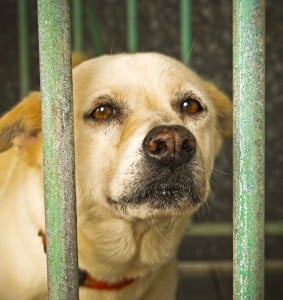Dogs Need Rehoming, Not Cloning!

Many people find the idea of creating a clone of a loved one pretty disturbing, and there are serious scientific and ethical arguments against cloning, too.
First, the cloning process is experimental, with a low success rate – between 0 and 20 per cent. The first team that managed to clone a dog had a success rate of two dogs out of 123. For every animal successfully cloned, many others have died somewhere along the way – deaths that were completely unnecessary, often in distressing laboratory conditions.
Anyone who has ever lost a loved one knows the grief can be overwhelming, but replicating an adored dog or cat, even if it is successful, can only replicate genetic material. Just as fraternal twins are different people, cloned animals will also have personalities that are different from the original ones. As cloning scientist Sir Ian Wilmut put it: “Owners will be disappointed”. Moreover, various studies have shown that cloned animals generally have a weak immune system, high rates of infection, increased incidence of tumour growth and disorders, high morbidity and mortality rates, and a poor survival rate of foetuses.
Every year, millions of homeless animals are euthanised because of a lack of suitable homes. More unfortunate animals are abandoned to fend for themselves on the streets and are often subjected to cruelty or succumb to starvation, diseases or injuries The best tribute that anyone can pay to an animal companion who has passed away is to give a happy future to one or two animals who are already on this Earth, equally deserving of love and desperately in need of a home.



